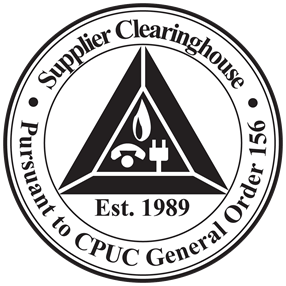Before Your Event
Tips to help you and your clients best prepare for interpreters at your event.


The key to hosting a seamless meeting or event is to start planning early. Here are some valuable tips to ensure your meeting or event is thoughtfully designed with Deaf accessibility in mind:
Arrival time: For all assignments, interpreters plan to arrive onsite 10-15 minutes early in order to find parking, connect with event organizers, and set up in the designated area. If your event has a flexible start time, this should suffice. For larger events like conferences that require the interpreter to be in position and ready to begin interpreting right away, it is recommended to book the interpreters 15 or 30 minutes early in order to provide time for set up (or tech checks, if virtual). Having interpreters arrive exactly as speakers are about to start can be disruptive to the event's flow. It's advisable to consider when you would typically schedule a speaker to arrive for their presentation and align the interpreters' schedule accordingly. Providing interpreters with a speaker badge to bypass long lines at a conference is another effective way to ensure adequate arrival time.
Rehearsals and prep time: When it comes to the accuracy of an interpretation, there is no comparing an event where the interpreters have reviewed the script and rehearsed their interpretations vs an event where the interpreters have no background on the topic and interpret it all real-time. If your speakers have a rehearsal for the event you're hosting, it's very beneficial to hire the interpreters to attend as well. This allows them to get familiar with the speakers' voices and presentation styles, look into the meaning of any technical terms that are used, collaborate on the best approach to interpret such terms, and rehearse those interpretations with each other. Consider whether interpreters without background training in your field can accurately interpret the content. In one-on-one meetings, there's more flexibility for clarifications in the moment, but for presentations to an audience, adequate preparation is crucial. If there's no rehearsal, consider providing interpreters with prep materials and compensating them for an hour or two of prep time. Materials may include PowerPoint slides, teleprompter scripts, videos, websites, or excerpts from textbooks. Our booking platform offers a seamless and secure method for directly sharing any documents with the team.
Ending time: Events sometimes run longer than anticipated. If there's a chance your event may exceed its scheduled end time, it's beneficial to book the interpreters with some additional time at the end. Freelance interpreters only reserve the requested time frame in their schedule, so they may need to leave promptly to make it to another assignment. If you'd prefer not to add any buffer time at the end of the request, it's important to communicate with the presenter or facilitator that the interpreters have a limited time slot.
Lighting and audio: Just as speakers undergo microphone and audio checks, it's equally important to ensure that ASL interpreters are visible and well-lit. It is helpful to dedicate lighting to the ASL interpreter for large events so the audience can see their interpretation clearly. When interpreters are placed to the side of the main stage, it is important to ensure they have a dedicated speaker facing toward them so they can hear the presenters clearly and interpret accurately. If the interpreters can't hear the presentation clearly, it is impossible to provide an accurate interpretation.
Reserved seating: It's helpful to reserve seating for Deaf participants near the front of the room, ensuring they have a clear view of both the ASL interpreter and the speaker at the same time if possible. Keep in mind that each Deaf attendee may have individual preferences, so reaching out to them before the event to understand their unique needs is crucial.
Detailed request: When making your request for ASL interpreters, ensure it is as clear as possible for someone who has never been to your site before. Include details like nearby parking, directions for your building's security, or a map of the venue. The interpreters also may not be familiar with your company's acronyms, hierarchy, norms, etc., so it is always appreciated when as much detail is included as possible. The more detail you provide, the more seamless and inclusive your event will be.

